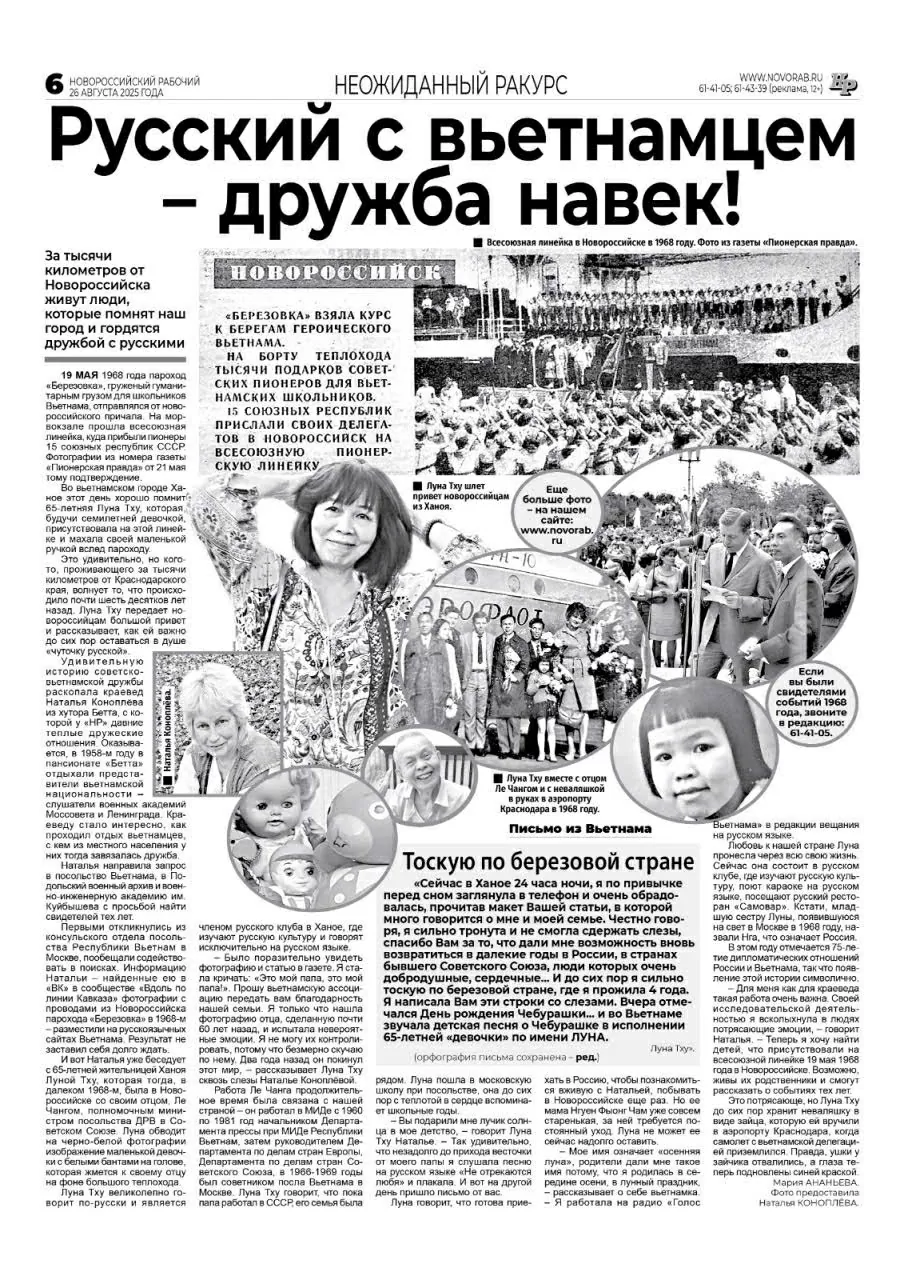 |
| Novorossiysk Rabochi newspaper (Russia) published an article titled 'Russians and Vietnamese - Eternal friendship'. (Screenshot) |
In the article, author Maria Ananyeva asks the question: What connects a Vietnamese woman named Luna Thu (Luna in Russian means Moon) with the port city of Novorossiysk (Krasnodar Region, Russia)? Although thousands of kilometers away, there are still people who always remember the city of Novorossiysk and are proud of their friendship with Russia.
On May 19, 1968, the ship "Berezovka" carrying humanitarian aid from the Soviet Union left the port of Novorossiysk for Vietnam, carrying thousands of gifts from Soviet teenagers to Vietnamese students. On the same occasion, Novorossiysk organized a parade across the Union with the participation of youth delegates from 15 Soviet republics. The Pionerskaya Pravda newspaper on May 21, 1968 recorded this event.
More than 50 years have passed, but for Mrs. Luna Thu, now 65 years old in Hanoi , the memories of those events are still fresh. She clearly remembers, as a 7-year-old girl, in a children's uniform, she held the flag and brought gifts from the Novorossiyk children participating in the parade, waving goodbye as the ship left the dock.
Miraculously, despite living thousands of kilometers away from Krasnodar, Luna Thu still gets emotional when recalling the events that took place nearly 60 years ago. She sends warm greetings to the people of Novorossiysk and shares that keeping 'a bit of Russia' in her soul has always been extremely meaningful to her.
The story of the Soviet-Vietnamese friendship was rekindled by local historian Natalya Konopleva of Betta village. She said that in 1958, a group of Vietnamese students from military academies in Moscow and Leningrad stayed at the Betta inn. Since then, she has been looking deeper into that special holiday and the friendship they forged.
Ms. Natalya sent letters to the Vietnamese Embassy, the Podolsk Military Archives and the Kuibyshev Military Engineering Academy, asking for assistance in finding witnesses of that period.
The consular section of the Vietnamese Embassy in Moscow was the first to respond, pledging to assist in the search. Information and photos collected by Ms. Natalya from the group "Along the Caucasus" about the Berezovka ship leaving the port of Novorossiysk in 1968 were posted on a number of Russian websites in Vietnam. The results came shortly after.
Now, Ms. Natalia had the opportunity to talk with Ms. Luna Thu – a Hanoian who came to Novorossiysk in 1968 with her father, Mr. Le Trang, who was then the Counselor of the Embassy of the Democratic Republic of Vietnam in the Soviet Union. In the remaining black and white photo, the little girl wearing a white bow, snuggled close to her father, with a large steamship in the background, is Ms. Luna Thu.
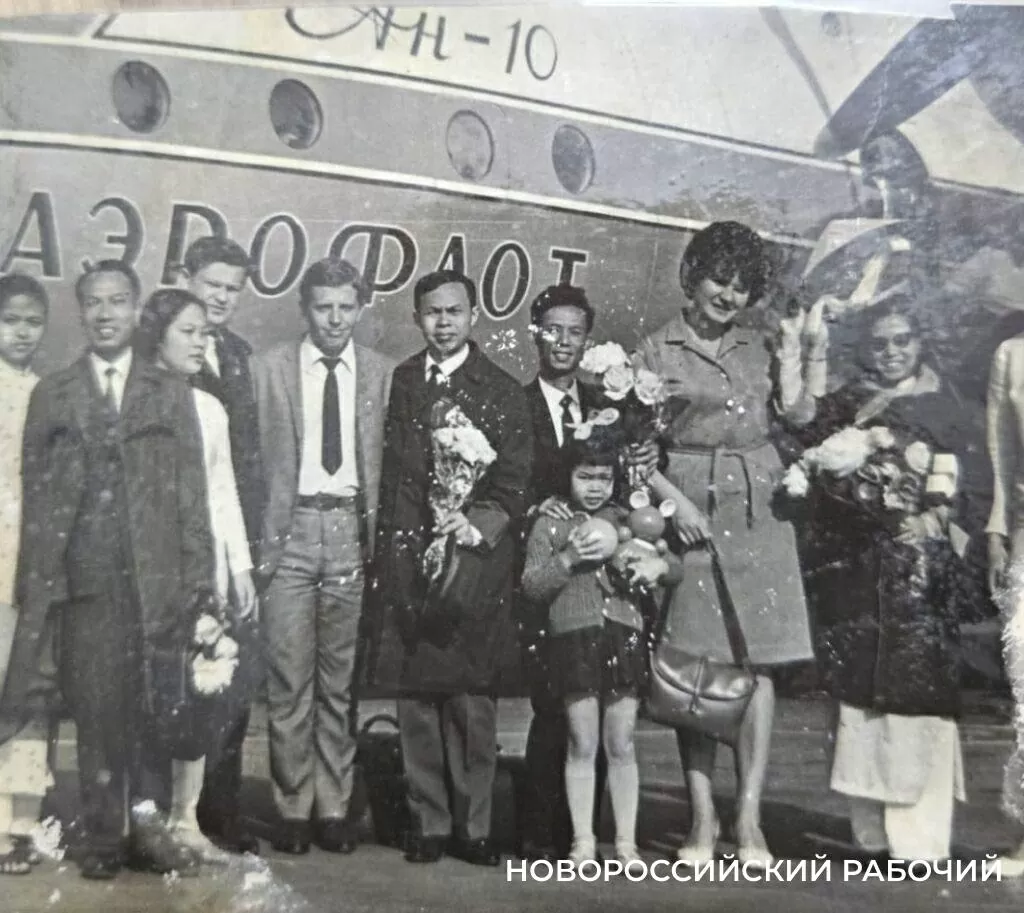 |
| Little Luna Thu (wearing a white bow) arrived in Novorossiysk in 1968 with her father. (Source: Novorossiysk Rabochi Newspaper) |
Ms. Luna Thu speaks Russian very well and is a member of the Birch Club in Hanoi, which connects people who love Russian culture, music and language. In her memory, Russia is like a second homeland, associated with birch trees, Russian melodies and childhood toys. When she grew up, at work, her colleagues often called her by her affectionate name Nga, conversed in Russian, becoming a cultural bridge.
"It was wonderful to see the photo and the article. I exclaimed: 'This is my father, this is my father!' I asked the Vietnam-Russia Friendship Association to convey my family's thanks to you. After nearly 60 years, I finally found a photo of my father, the feeling is hard to describe. I could not hold back my tears, because I always miss him so much. My father left us two years ago," Ms. Luna Thu choked up as she shared with Ms. Natalia Konopleva.
Mr. Le Trang's work has been closely linked to the Soviet Union for a long time - he worked at the Ministry of Foreign Affairs from 1960 to 1981, as a leader in the Press and Information Department, the European Department, and the Soviet Union Department at the Vietnamese Ministry of Foreign Affairs. From 1966 to 1969, he was a Minister Counselor at the Vietnamese Embassy in Moscow. Ms. Luna Thu said that when her father worked in the Soviet Union, her family lived there with him. She attended school in Moscow and still remembers her school years with many warm emotions.
“You brought me the warm sunshine of my childhood,” Mrs. Luna Thu emotionally told Mrs. Natalia.
She said she was willing to go to Russia to meet Ms. Natalia in person and visit Novorossiysk again. However, her mother, Ms. Nguyen Phuong Tram, was old and needed constant care, so she could not stay away for long.
"My name means 'Autumn Moon'. My parents gave me that name because I was born in the middle of Autumn, right on the occasion of the Mid-Autumn Festival," the Vietnamese woman explained. "I work at the Voice of Vietnam , Russian Broadcasting Service."
Luna Thu carried her love for Russia throughout her life. Her younger sister was born in 1968 in Moscow, and her name is Nga, which means "Russia".
 |
| Little girl Luna Thu (on stage, white dress) at the farewell ceremony for the Soviet ship leaving Novorossiysk port carrying aid to Vietnam in 1968. (Source: Novorossiysk Rabochi Newspaper) |
This year marks the 75th anniversary of the establishment of diplomatic relations between Russia and Vietnam, and the publication of this story has a special significance. “As a local historian, I consider this research very important. Through the research, I hope to awaken beautiful emotions in people's hearts,” said Ms. Natalya. She expressed her wish to find the children who participated in the All-Union parade on May 19, 1968 in Novorossiysk so that they can retell their memories of those years.
The strange thing is that after all these years, Ms. Luna Thu still keeps the stuffed rabbit that was given to her at Krasnodar airport, when the plane carrying the Vietnamese delegation landed, even though its ears have fallen off and its eyes still have streaks of blue paint.
In a letter to the editor, Ms. Luna Thu wrote:
"It's midnight in Hanoi now. As usual, I checked my phone before going to bed and was very happy to read the draft of your article, which included a lot of things about me and my family. Honestly, I was deeply moved and couldn't hold back my tears.
Thank you for giving me the opportunity to return to the past, to relive the atmosphere of the old Soviet Union – where the people were kind, warm, and the friendship was sincere. I still deeply remember the years of attachment to the land of birch trees, where I lived for four years. I write these lines with a choked voice.
Yesterday was Cheburashka's birthday (the small, kind cartoon character that Soviet children loved so much). In Vietnam, there was a 65-year-old 'girl' named Luna who sang the song about Cheburashka again with all the same feelings as before .
Luna Thu ".
It can be seen that the friendship between peoples, especially between Russia and Vietnam, is not only written by the history of solidarity in the struggle for independence, but also by simple everyday stories, letters, gifts and childhood memories. For Ms. Luna Thu, for thousands of Vietnamese children in 1968, it is a sacred memory of the Soviet-Vietnamese friendship, lasting through time.
In 1966, Ta Thu Hang (born in 1960) and her parents (Le Trang, also known as Ta Quang Thuat and Nguyen Phuong Tram) boarded a train to the Soviet Union, where Mr. Le Trang was assigned as Counselor at the Vietnamese Embassy in Moscow. Ta Thu Hang studied Russian at the Specialized Language High School, Russian Department, Hanoi University of Foreign Languages. After graduating, she worked for more than a year at Vietnam News Newspaper, then worked at the Russian Radio Department of Voice of Vietnam until her retirement. |
Source: https://baoquocte.vn/nguoi-nga-va-nguoi-viet-huu-nghi-muon-doi-329263.html






![[Photo] Prime Minister Pham Minh Chinh meets with representatives of outstanding teachers](https://vphoto.vietnam.vn/thumb/1200x675/vietnam/resource/IMAGE/2025/11/15/1763215934276_dsc-0578-jpg.webp)
![[Photo] General Secretary To Lam receives Vice President of Luxshare-ICT Group (China)](https://vphoto.vietnam.vn/thumb/1200x675/vietnam/resource/IMAGE/2025/11/15/1763211137119_a1-bnd-7809-8939-jpg.webp)







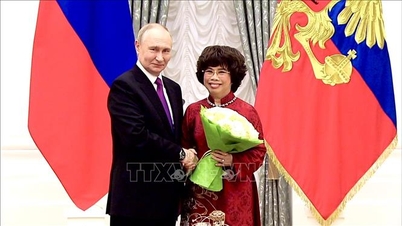



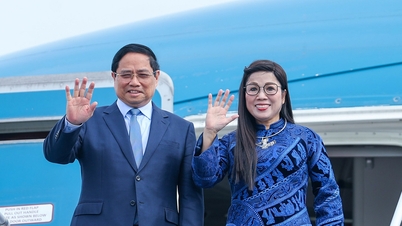


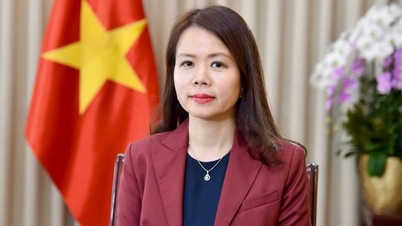
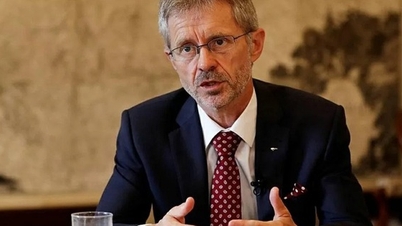





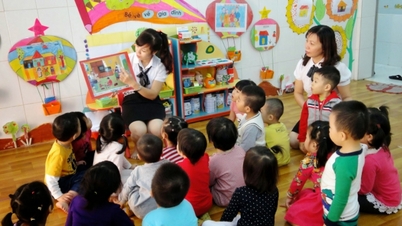
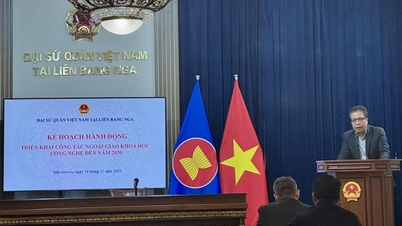
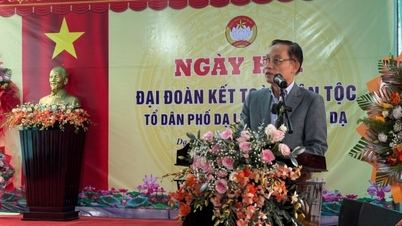
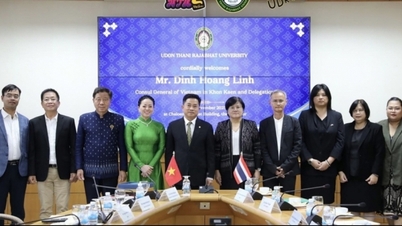

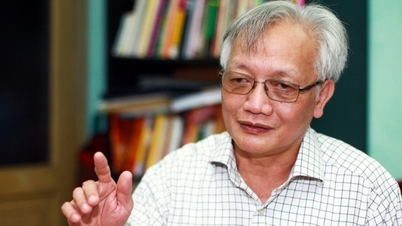






































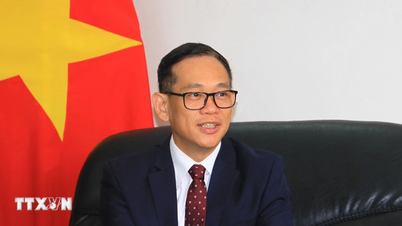



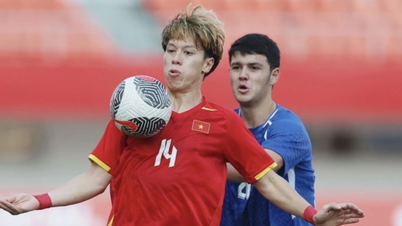







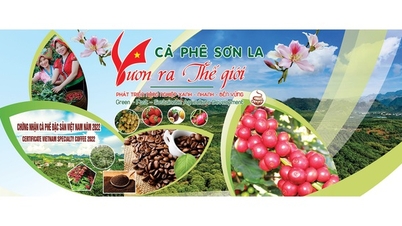






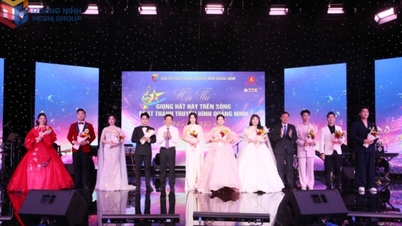

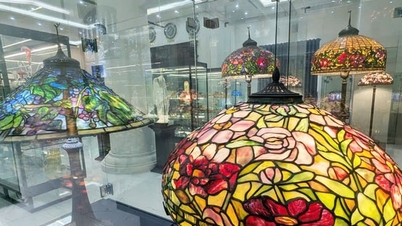








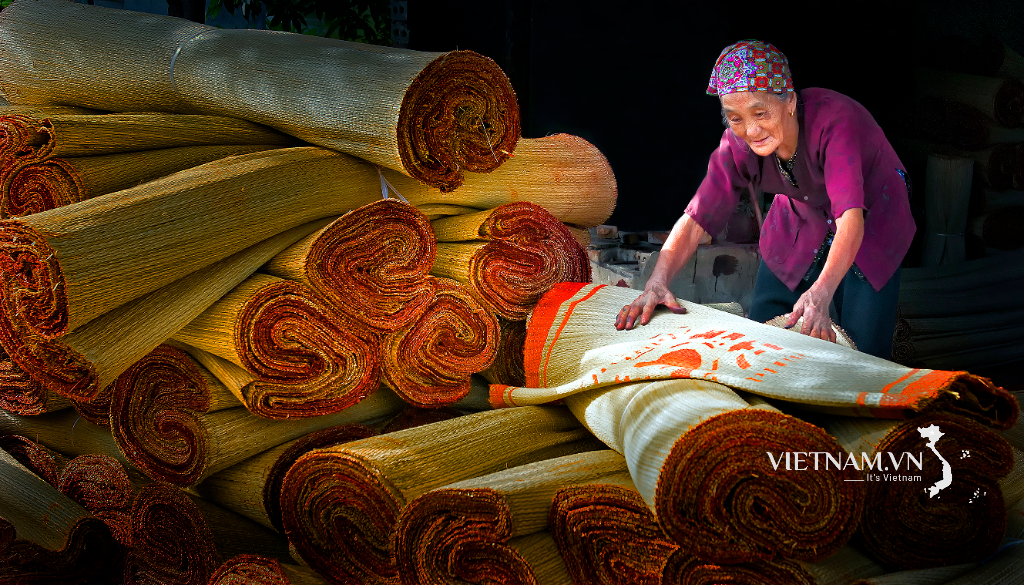
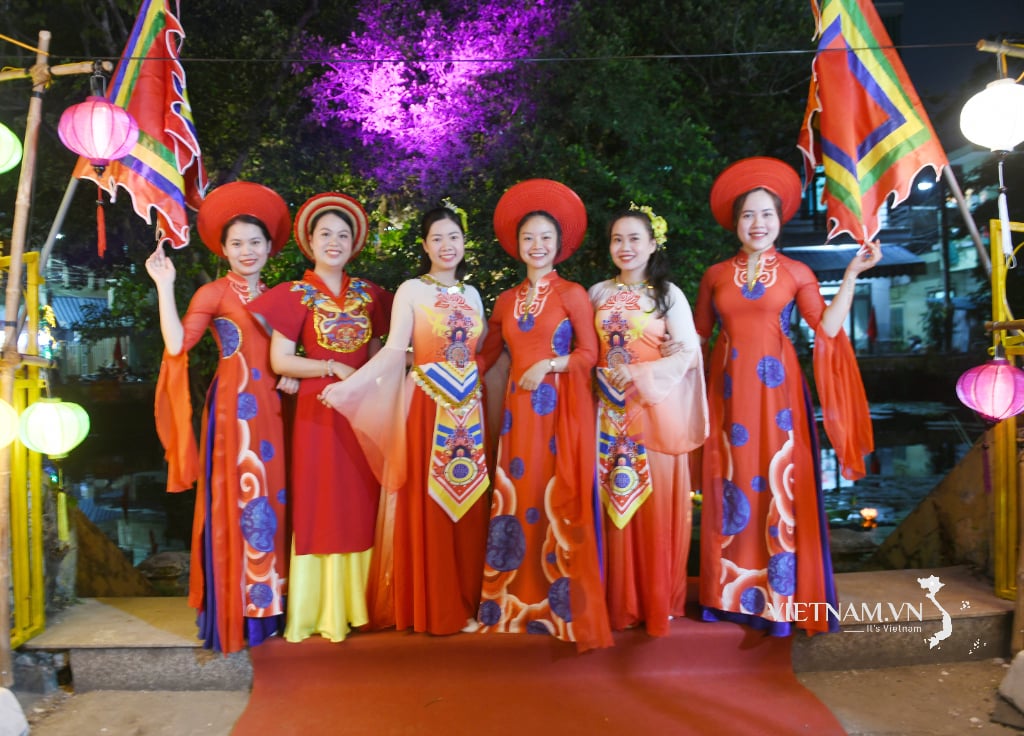
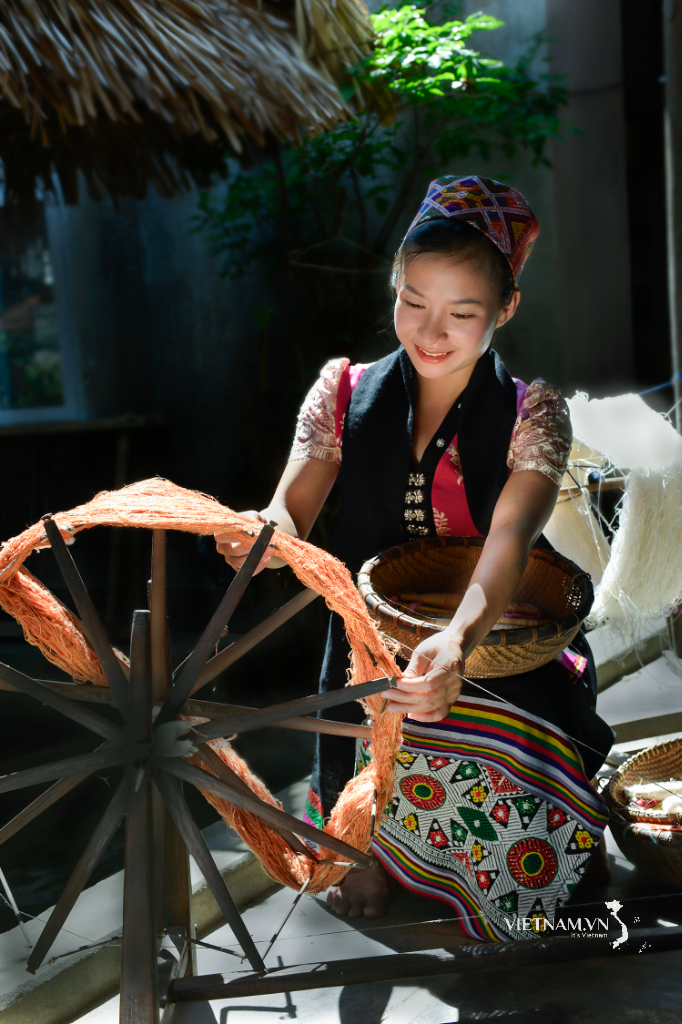

Comment (0)